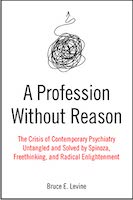Activists routinely become frustrated when truths about lies and oppression don’t set people free to take action. But as a clinical psychologist who has worked with abused people for more than 25 years, it does not surprise me to see that when we as individuals or as a society eat crap for too long, we become psychologically too weak to take action.
There are at least three major pieces to the puzzle of transforming the “corporatocracy” (rule by giant corporations, the extremely wealthy elite, and corporate-collaborator government officials) into something closer to democracy. And activists often neglect the third piece.
First, it is necessary but not sufficient that Americans be informed about the truths of corporatocracy rule. The good news is that despite the corporate media’s failure to reveal many important truths, polls show that the majority of Americans know enough about the Afghanistan and Iraq wars, Wall Street bailouts, and health insurance to oppose corporatocracy policies here (see “The Myth of U.S. Democracy and the Reality of U.S. Corporatocracy”).
Second, in addition to awareness of economic and social injustices and loss of liberties, it is also necessary but not sufficient to have knowledge of strategies and tactics that oppressed people have historically used to overcome tyranny.
Third, a routinely overlooked piece of the puzzle is overcoming the problem of demoralization. Singer/songwriter Leonard Cohen pointed out in 1988, “Everybody knows that the good guys lost.” If not everybody, then certainly many Americans understand the reality of corporatocracy rule. It’s a truth that triggers frustration and anger, and some of us are able to use that frustration and anger to energize constructive actions. However, there are a great many Americans who have been so worn down by decades of personal and political defeats, financial struggles, social isolation, and daily interaction with impersonal and inhuman institutions that they no longer have the energy for political actions.
Many Americans have developed what Leonard Cohen called “this broken feeling” or what Bob Marley — the poet laureate of oppressed people around the world — called “mental slavery.” Social scientists have also recognized this phenomenon of subjugation resulting in demoralization and defeatism. Paulo Freire, the Brazilian educator and author of Pedagogy of the Oppressed, and Ignacio Martin-Baró, the El Salvadoran social psychologist and popularizer of “liberation psychology,” understood this psychological phenomenon of fatalism. We must first acknowledge the reality that for millions of American, subjugation has in fact resulted in demoralization, fatalism, and mental slavery. Then, we can begin to heal from what I call “battered people’s syndrome” and “corporatocracy abuse.”
There exist solid strategies and time-tested tactics that people have long used to battle the elite (which I detail in Get Up, Stand Up). However, these strategies and tactics by themselves are not sufficient. A vitally important part of the solution is creating the “energy to do battle.” Thus, for large-scale democratic movements to have enough energy to get off the ground, certain psychological and cultural building blocks are required.
Historian Lawrence Goodwyn has studied democratic movements and written extensively about the Populist Movement in the United States that occurred during the end of the nineteenth century, what he calls “the largest democratic mass movement in American history.” Goodwyn writes in The Populist Moment that “individual self-respect” and “collec¬tive self-confidence” are the cultural building blocks of mass democratic politics.
Without individual self-respect, people do not believe that they are worthy of power or capable of utilizing power wisely, and they accept as their role being a subject of power. Without collective self-confidence, people do not believe they can succeed in wresting power away from their rulers.
What today, culturally and psychologically, has destroyed individual self-respect and collective self-confidence? One goal of Get Up, Stand Up is to examine this question. The good news is that answers to it provide, within the ordinary daily events of people’s lives, a road map of opportunities to regain individual self-respect, collective self-confidence, and real power.





[…] the 1940s and 1950s a public–private alliance came into being, motivated On the same topic: https://brucelevine.net/the-missing-piece-in-the-battle-for-u-s-democracy/ Nice related topic here: […]
Loved your keynote address at the National Empowerment Center’s conference. The best idea for me was the idea that the best way to beat stigma is not medicalization, but telling everyone that people recover, that emotional struggles are not permanent, and that people labeled with psychiatric labels have founded a democracy movement.